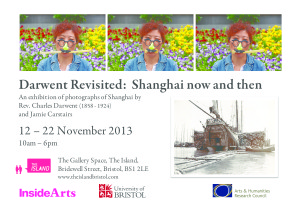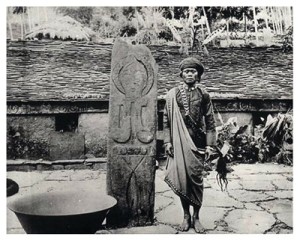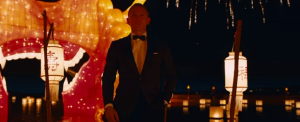Posted: November 12th, 2013 | No Comments »
The news from China is not good – Bloomberg has bottled it and says it’s not going to do investigative journalism any more in China (those terminals are just too valuable to win out against real journalism) while a veteran hack, Paul Mooney, has been refused a visa. For more on this read the Economist blog here. Much discussion and hand wringing has (rightly) ensued among the foreign press corps in Beijing. China Rhyming of course prefers to take the historical view and look back to the 1920s and how the Chinese government (KMT then and back in the days when it was the Communists, among others, being censored) tried to limit the investigative attempts of the foreign hack pack….
(the below is from my book Through the Looking Glass: China’s Foreign Journalists From Opium Wars to Mao (now available for a very reasonable price on Amazon as a Kindle)
Bans — Fun with the Censors
The government took exception to a wide range of foreign correspondents in the 1920s. The North-China Daily News in Shanghai was often openly hostile to the government. It was a supporter of extraterritoriality and constantly worried about the loss of Great Power privileges and rights if Chiang should decide to continue his Northern Expedition into the treaty ports, which seemed a distinct possibility to many; and the paper was also often perceived to be sympathetic to Tokyo, in line with British Foreign Office thinking at the time. In 1929 the paper was subjected to a postal ban by the government, largely as a result of articles by Rodney Gilbert and George Sokolsky. Following this, in 1930, the paper’s editorial line changed noticeably when the staunchly pro-British O. M. Green was rather controversially replaced as editor by Edwin Haward, the well-regarded India Hand who had worked on the Civil and Military Gazette in Lahore (Kipling’s old employer). The paper became more pro-government and also more objective in its reporting of issues involving tricky topics such as extraterritoriality. The Old Lady of the Bund’s change of heart was due to Haward’s new editorial decisions as well as a broader change in the sensibilities of the foreign population in China who increasingly decided to live with theNationalist government rather than oppose it. Haward may have been more a man of India than China but he knew his stuff and had also been a long and close friend of  J. O. P. Bland. Though the North-China was hardest hit, both the French-owned Journal de Pekin and Woodhead’s Peking and Tientsin Times suffered various penalties, from being denied the use of the mail system to all copies circulated outside the foreign concessions being seized and burned byNationalist officials.
However, few journalists were as directly targeted by the Nationalists as Hallett Abend (below). He had made multiple enemies in the Chiang clan through various actions, including the perhaps unwise decision to punch Chiang’s son on the nose and accuse the Generalissimo of suffering from unbridled ambition. The government tried to discredit him with Adolph Ochs, the publisher of the New York Times, and attempted to deport him several times. They were unsuccessful, but the Chinese telegraph offices were ordered not to handle his despatches and he had to resort to the rather roundabout method of sending them to the Times’s Tokyo bureau for forwarding to New York. Despite the government’s intense dislike of Abend, extraterritoriality meant they couldn’t expel him and, as he was the representative of a highly influential paper, he was still invited to the regular tea and sandwiches briefings for foreign reporters held by Chiang and Madame Chiang in Nanjing. However, he could never be sure if the two shots fired at him while in a rickshaw in Beijing, or, several years later in 1934, an attempted stabbing at Shanghai’s North Railway Station, were random attacks or botched assassination attempts.
Other correspondents also found themselves the subject of intense lobbying of their bosses by the Nationalists, if not assassination attempts. For example, Charles Dailey, the Chicago Tribune’s Beijing correspondent was contacted by his bemused editor who had been deluged with sacks of mail denouncing Dailey in what appeared to be an orchestrated campaign similar to that organised against Abend.

Posted: November 12th, 2013 | No Comments »
Thanks to Sue Anne Tay of the great Shanghai Street Stories blog for alerting me to this new book and selflessly couriering a copy in person over to London for me! Now Hudec has been covered before on China Rhyming – back in 2010 I spent a day walking around his old, and at that time deserted house on Columbia Road (Panyu Road) in the old Western External Roads district of Shanghai. At that time it was empty, in a bit of state and being lived in by a migrant family who were paid to keep it barely functional. We took a lot of pictures. Fortunately (and against the odds in bulldozer driven Shanghai) the house survived to become The Hudec Memorial Hall and is now open to the public I believe.
Laszlo Hudec himself was responsible for some great Shanghai buildings of the 1930s – the Park Hotel, Grand Theatre, Moore Memorial Church and DV’s Woo’s Residence. Now Hua Xiaohong and Michelle Qiao have produced a charming little book – Shanghai Hudec Architecture – produced by the Tonji University Press. It has a lot of details, architectural plans and photos of all Hudec’s buildings and is well worth the cover price of RMB56 (or just RMB33.60 on Amazon.cn). How you get the book outside China I do not know. Sue Anne Tay has a longer article on the book worth reading here.

Posted: November 11th, 2013 | No Comments »
An interesting project using Darwent’s old photos and guide book to Shanghai to look at the city now from Jamie Carstairs, the man behind Visualising China….
Darwent revisited: Shanghai now and then
12 to 22 November, 10 am to 6 pm
The Gallery Space, The Island, Bridewell Street, BS1 2LE
The Reverend Charles Darwent’s gregarious guidebook to Shanghai, Shanghai: A Handbook for Travellers and Residents, published in 1904, contains many helpful tips for photographers about where to find ‘pictures of Chinese life’. In 2009, an album of Darwent’s own photos surfaced and was kindly lent to the Historical Photographs of China team to be copied.
Inspired by this, team member Jamie Carstairs sought to recapture the spirit of the photographer-friendly guidebook, to locate and revisit the places Darwent enthusiastically describes – and to photograph whatever was there now. The resulting exhibition explores relationships between Darwent’s guidebook text, with the photos taken by Jamie, and with Darwent’s own photographs and other archive images from the Historical Photographs of China collections.]

Posted: November 10th, 2013 | No Comments »
Yesterday I posted a small anecdote on the British listening post in Hong Kong picking up Chinese radio and being amazed that they cared seemingly deeply about the abdication of Edward VIII in 1937. Made me wonder where exactly these people were with their headphones on listening in to China before the Second World War. Well, here’s what I have (and Hong Kong war buffs can feel free to correct me of course).
Prior to WW2 the Royal Navy’s Signal Radio Interception (SigInt) team and a direction finding station were based on Stonecutter’s Island, which was formerly in Victoria Harbour but is now annexed, due to land reclamation, to Kowloon (Britain got the island as part of the 1860 Convention of Peking). Between 1935 and 1939 (i.e. a period covering the abdication crisis) the Stonecutter’s Island base was the main radio interception unit for Britain’s Far East Combined Bureau. So that’s where out man sat listening.
And many thanks to Warwick University’s Politics and International Studies web site for additional information on the wartime location of the Navy’s Hong Kong SigInt team (known as 367 Signals Unit, which seems to have relocated from Stonecuter’s Island in Little Sai Wan. I believe the Japanese took over this location for their own signals intelligence after the fall of Hong Kong and until 1945. More on that location here.
 Stonecutter’s Island in the 1930s
Stonecutter’s Island in the 1930s

Little Sai Wan
Â
Posted: November 9th, 2013 | No Comments »
Sinclair McKay’s new book The Secret Listeners: How the Wartime Y Service Intercepted the Secret German Codes for Bletchley Park is a fascinating study of the men and women who worked around the world before and during World War Two listening to what was being said. One small, but interesting, China nugget in the book – Y Service (British Signals Intelligence) operated Y Stations globally, including in Hong Kong. That station listened in to Chinese radio stations and communications to see if anything worth knowing was being said. Apparently, according to the book, during the abdication crisis of December 1936 and into 1937 Chinese radio stations discussed and commented on the abdication of Edward VIII and his relationship with Wallis Simpson a lot. The Y Service listeners were surprised enough to report that the coverage of the crisis was overwhelmingly anti Mrs Simpson. Exactly why Chinese radio stations disliked Wallis Simpson so much is not quite clear – surely her infamous “Lotus Year” in Peking and Shanghai was not the problem, nor was there any reason the Chinese should feel particularly warm to Edward VIII. I can only think that they just felt the whole thing a bit “off” for forcing such a drastic step? Anyway, the woman was lambasted in China it seems.

Posted: November 7th, 2013 | No Comments »
“We’re all in Tommy’s Army now boys” – even apparently Kim Jong-un!! If you have no idea what I mean then you haven’t yet seen the excellent BBC show Peaky Blinders about the gangs of Birmingham and set in the years immediately after the First World War. It’s the story of the Shelby family gang, the Peaky Blinders, and features a whole bunch of good stuff including a highly hyper-realised Birmingham Chinatown (fun but not overly accurate), rigged horses, gypsy gangs, some mental IRA blokes, Commie trade unionists and all that. Tommy himself – gang leader and WWI vet – likes to take to the opium pipe when the memories get a big tough. “Tommy’s army” (the excellent Cillian Murphy) is made up of lads back from the Trenches.
One much commented upon aspect of the Peaky Blinders has been the haircuts – brutally shaved close at the back and sides and floppy and parted on top. Not a regulation army cut I don’t think and apparently (I read somewhere) the show’s stylist was inspired by Australian gangs of the 1920s (for more on that see the excellent Underbelly: Razor). However, it appears one other known tele-addict and gang leader has decided he likes the haircut too!
Yes, Kim Jong-un it appears fancies himself a 1920s Birmingham gang boss!! I submit as evidence M’lud some Peaky Blinders from Birmingham and the leader of the Pyongyang faction!!



Posted: November 7th, 2013 | 1 Comment »
Saturday 9th November 2013 at 4 PM (start 4:15 PM)
Hosted in partnership with M Literary Salon at the Glamour Bar
(address below)Â
NICOLAS GREVOT on
“Taiwanese Aborigines”

In a lecture that delves into an often-overlooked aspect of Taiwanese history and culture, Nicolas Grevot discusses the hardships faced by the island’s indigenous population in the face of colonial occupation.
Called “Formosa” (Beautiful island) by the Portuguese navigators that sailed by in the 17th century, Taiwan has been inhabited for at least 8,000 years by indigenous peoples known today as Taiwanese aborigines. Grevot will discuss who they are, how they fared throughout the history of the island, interacting with the Dutch colonial power, the Chinese/Han immigration, the Qing dynasty, the Japanese colonial authorities and the Kuomintang administration, and how they are living today in modern Taiwan.
Nicholas will also investigate how the ancestors of the Taiwanese aborigines began a long migration towards the Pacific area 6,000 years ago that gave birth to the Austronesian culture and Austronesian languages that are spoken today by close to 500 million people.
NICOLAS GREVOT: Nicolas Grevot, a French national, arrived in Shanghai in 2008 to follow his Taiwanese executive wife. He has not always been a trailing spouse. Before coming to Shanghai, he stayed for 15 years in Taiwan where he worked as a journalist. There, he fell in love with the island and its peopl![]() e, mostly its indigenous population. During this long stay, he built an important collection of cultural items from the Taiwanese aborigines (close to 300 items) that is now on loan to the Shisanhang Museum of Archeology, in Xin Taipei, Taiwan, and is regularly exhibited in the island. The collection can be seen on this website: www.formosatribal.com
e, mostly its indigenous population. During this long stay, he built an important collection of cultural items from the Taiwanese aborigines (close to 300 items) that is now on loan to the Shisanhang Museum of Archeology, in Xin Taipei, Taiwan, and is regularly exhibited in the island. The collection can be seen on this website: www.formosatribal.com
RSVP to RAS Bookings at: bookings@royalasiaticsociety.org.cn
ENTRANCE: Members: 80 rmb  Guests: 130 rmb  Includes a glass of wine or soft drink. Priority for RAS members.
Â
MEMBERSHIP applications and membership renewals will be available at this event.
Â
RAS MONOGRAPHS – will be available for sale at this event. 100 rmb each (cash sale only)
Â
WEBSITE: www.royalasiaticsociety.org.cn
The Glamour Bar
6/F, No. 5 The Bund (corner of Guangdong Lu)
Shanghai 200002 China
ä¸å›½ä¸Šæµ·å¸‚外滩广东路20å·7楼 邮编 200002
Tel: (86 21) 6350 9988
www.m-restaurant.com
Posted: November 5th, 2013 | No Comments »
Hey, a bunch you emailed me a Chinese lantern reference….not exactly literature but I’ll take it anyway
Bond – Skyfall – Macao…..











